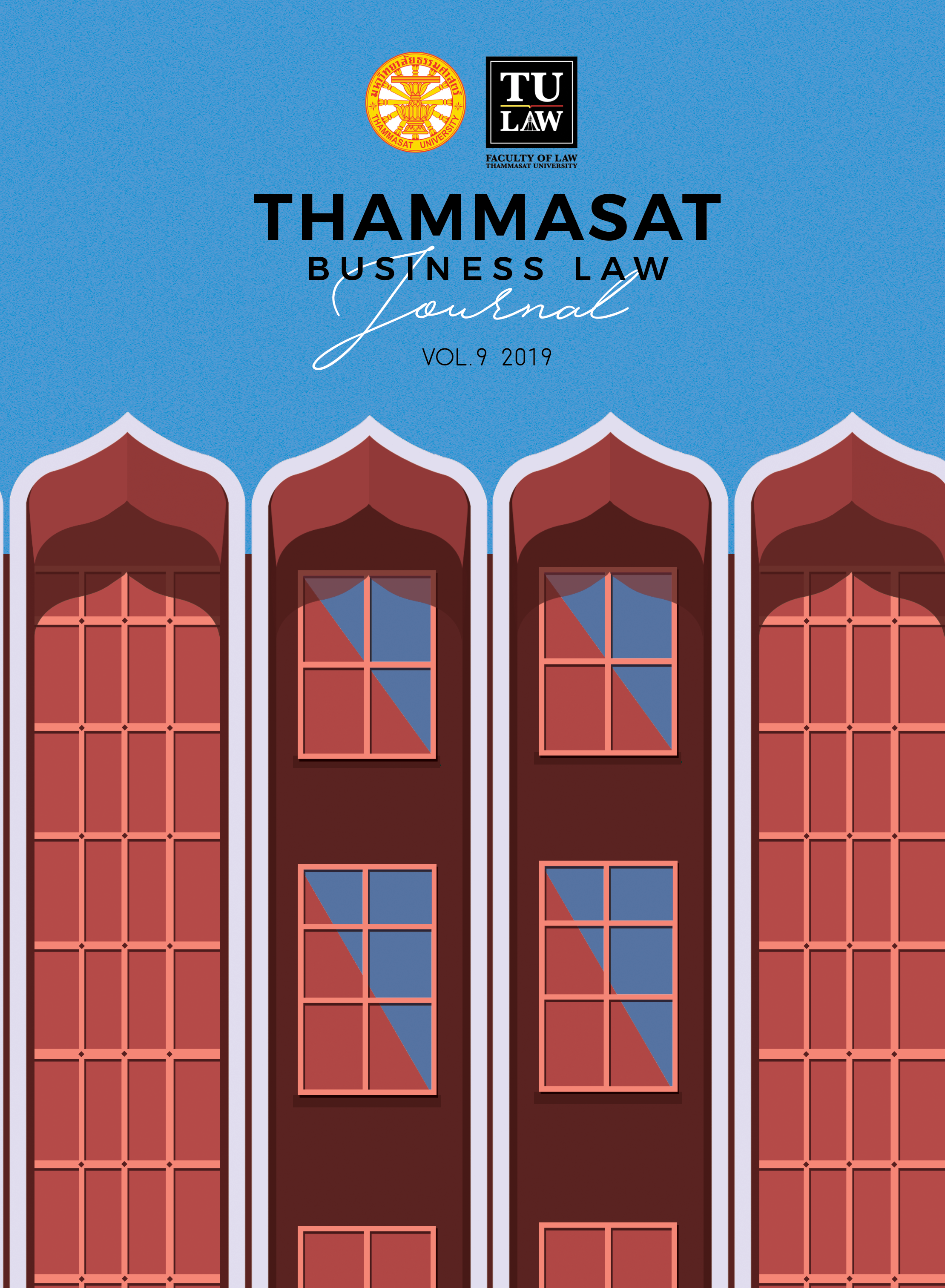Legal Status of Workers under the Sharing Economy: A Proposal of Hybrid Employment Category
Main Article Content
Abstract
The internet revolution that combined technology with various field of science together to produce a better standard of living known as “Disruptive Technology”. It disrupts the existing industry structures by facilitating commerce using technology-enabled, peer-to-peer and business-to-peer platforms referred to as the “Sharing Economy”. The emergence of work type also creates more complex employment relationships which need a distinction between hire of work and hire of service. As one of the outstanding example of Sharing Economy’s Business, a Transportation Network Company (TNC) which is a ridesharing business such as Uber, Grab and Lyft. It is crucial that an entrepreneur needs to appropriately justify the status of workers in their business since TNC’s driver resemblances both employee and independence contractor. Hence, the author will study theory and regulation from Italy, Spain, and Canada to analyze these countries regulation and experiences of a Hybrid Employment Category, known as “Dependent Contractor”. This will reduce legal uncertainty for a disruptive business not only for TNC but can apply commonly, to protect both TNC and its drivers simultaneously.


